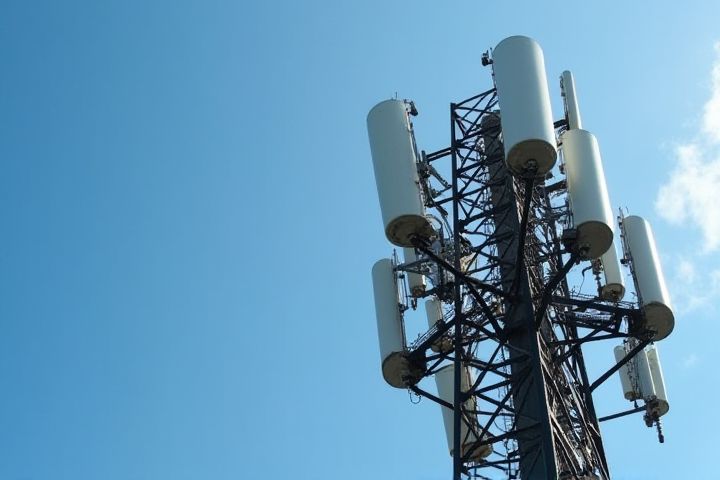
Telecommunication companies in Nigeria include major players like MTN Nigeria, Airtel Nigeria, Glo, and 9mobile, providing extensive mobile and internet services. MTN Nigeria, the largest operator, offers a wide range of data plans and mobile services to over 76 million subscribers. Airtel Nigeria focuses on delivering reliable 4G LTE connectivity, catering to both urban and rural areas with innovative pricing models. Glo, known for its competitive pricing, provides unique plans for voice and data services, striving to enhance connectivity across the nation. 9mobile, although smaller, offers specialized packages that appeal to niche markets, emphasizing customer service and user experience.
Market leaders include MTN, Airtel, and Glo
Nigeria's telecommunications landscape is dominated by key players such as MTN, Airtel, and Glo, each contributing significantly to the country's connectivity. MTN, known for its extensive network coverage and innovative service offerings, has garnered a substantial market share, making it a household name. Airtel follows closely, distinguishing itself through competitive pricing and customer-focused solutions that cater to diverse demographics. Glo, the indigenous telecom provider, features unique plans tailored for local users, enhancing its appeal in the increasingly competitive market.
Predominantly use GSM technology
Telecommunication companies in Nigeria predominantly use GSM (Global System for Mobile Communications) technology, which supports a host of services including voice calls, SMS, and mobile data. This technology has enabled millions of Nigerians to access mobile services, fostering significant growth in connectivity and communication. Key players in this sector include MTN Nigeria, Glo, Airtel, and 9mobile, all of which have expanded their networks to enhance coverage across urban and rural areas. The widespread adoption of GSM has paved the way for innovations in mobile banking, e-commerce, and social media engagement, transforming the digital landscape in Nigeria.
Rapid smartphone adoption
Telecommunication companies in Nigeria are leveraging rapid smartphone adoption to enhance connectivity and expand their customer base. With over 90 million smartphone users in the country as of 2023, providers are investing in network infrastructure and affordable data plans. This surge in smartphone usage facilitates increased digital services, including mobile banking, e-commerce, and social media applications. By targeting smartphone users, telecom firms are not only improving their market share but also driving economic growth and digital literacy in Nigeria.
Focus on 4G and 5G expansion
Telecommunication companies in Nigeria are prioritizing the expansion of 4G and 5G networks to enhance connectivity and improve internet access across the country. This investment in advanced infrastructure aims to support a growing digital economy, enabling faster data transmission and better service delivery for users. Major players in the industry, such as MTN, Airtel, and Glo, are actively rolling out these networks to meet increasing demand for high-speed internet and support innovations like IoT and smart technologies. As Nigeria's mobile subscriber base continues to rise, the shift towards more robust network capabilities is crucial for driving economic growth and development.
Mobile money services integration
Telecommunication companies in Nigeria are increasingly prioritizing mobile money services integration to enhance financial accessibility. These services enable users to conduct transactions, transfer funds, and make payments via their mobile devices, driving financial inclusion in a largely unbanked population. Major players, such as MTN and Airtel, are expanding their digital ecosystems, offering diverse features like bill payments and merchant services. As a result, mobile money is transforming the economic landscape, fostering entrepreneurship and enabling consumers to manage their finances more effectively.
Regulatory body: Nigerian Communication Commission
Telecommunication companies in Nigeria operate under the oversight of the Nigerian Communications Commission (NCC), which ensures compliance with industry regulations and promotes fair competition. The NCC sets standards for service quality, consumer protection, and infrastructure development, significantly influencing the growth of the telecommunications sector. Companies must also navigate licensing requirements, frequency allocation, and guidelines for market entry to maintain their operational licenses. Understanding and adhering to NCC regulations is crucial for any telecom operator aiming to succeed in Nigeria's dynamic market.
Infrastructure sharing agreements
Telecommunication companies in Nigeria emphasize infrastructure sharing agreements to enhance network efficiency and reduce operational costs. These collaborations allow multiple providers to utilize existing towers and fiber optic cables, minimizing the need for duplicate investments. By leveraging shared resources, companies can expand their coverage and improve service delivery, particularly in underserved areas. This strategic approach not only supports competitive pricing for consumers but also fosters technological advancement within Nigeria's telecommunications sector.
Internet penetration initiatives
Telecommunication companies in Nigeria prioritize expanding Internet accessibility through various initiatives, aiming to bridge the digital divide across urban and rural areas. With investments in infrastructure, such as fiber optic networks and mobile data expansion, these companies enhance connectivity for millions of users. Promoting affordable data plans and digital literacy programs enables more individuals to engage in online activities, from education to commerce. By fostering partnerships with government and local stakeholders, telecommunication firms work to create a more inclusive digital economy for Nigerians.
Competitive data pricing
Telecommunication companies in Nigeria prioritize competitive data pricing to attract and retain customers in a rapidly growing digital market. This pricing strategy often includes various data bundles tailored to meet diverse consumer needs, promoting both affordability and flexibility. As a result, companies like MTN, Glo, and Airtel continually innovate their service offerings, driving increased internet penetration across urban and rural areas. For you, this means greater access to high-speed internet services and enhanced connectivity options, fostering a more connected society.
Digital transformation strategies
Telecommunication companies in Nigeria are increasingly adopting digital transformation strategies to enhance service delivery and customer engagement. Major players like MTN Nigeria and Airtel are leveraging advanced technologies such as 5G, Internet of Things (IoT), and artificial intelligence (AI) to optimize operations and improve user experience. These digital initiatives not only streamline processes but also drive innovation in mobile banking, e-commerce, and digital content delivery. In your quest for reliable telecommunications services, staying informed about these developments can help you make better choices tailored to your needs.
